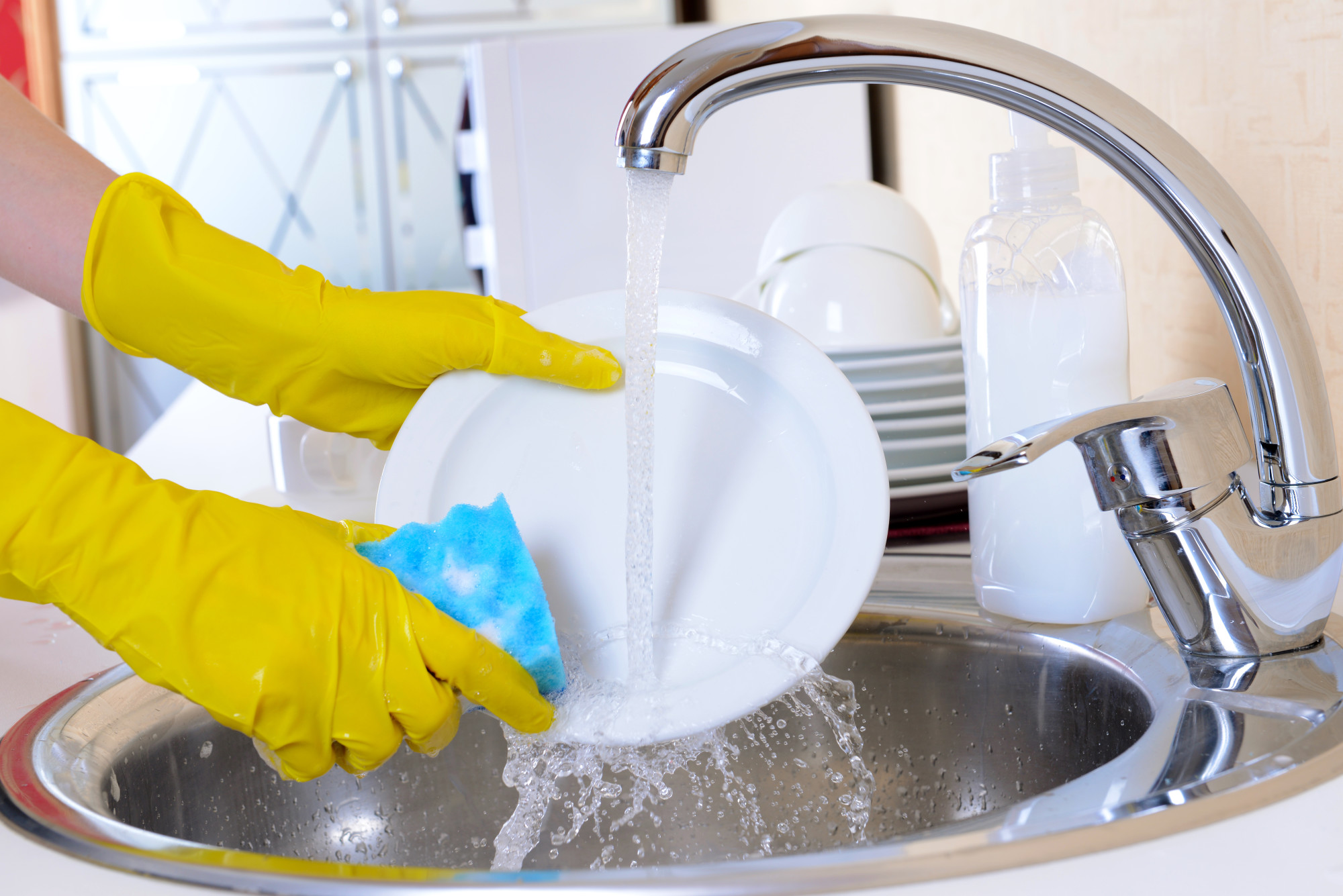It’s no secret that people absolutely hate doing dishes. The dirty nature of the dishes, combined with the fact that you have to do them every day — sometimes twice a day — combined with the fact that you’re dealing with bits of people’s food makes dishes annoying to wash.
However, they can become a lot less tedious if you know how to wash dishes right. Many of the problems people face when doing dishes break down to misconceptions about how dishes are done.
Do you hate to do dishes? Then you’ve come to the right place. This article will walk you through everything you need to know.
Preparation
Preparation is the most important step to washing dishes. By adjusting the way certain aspects of your life work, you can make dishes much easier for you.
After you’ve cooked, make sure to put any dirty pots and pans in the sink, and fill them with water. This will make them much easier to clean later, as nothing you cooked will wind up hardened and stuck to your dish. Do the same when you eat something that can easily dry, such as oatmeal.
Try to get breakfast dishes done after breakfast is finished, and wash cups after they’re used for coffee. Often, pots and pans are the hardest dishes to wash — cups are relatively easy, and a lot more fun. If you get breakfast dishes and cups out of the way before dinnertime, you’ll avoid a big stack that’s tough to wash.
Avoid the Stack
Speaking of that stack, make sure you avoid it at all costs. When you have dishes piling up out of the sink, you can’t let the flow of the work take over, and meditatively fall into doing the dishes. You’ll instead worry about splashing water everywhere.
If you need to, do some dishes as your spouse is cooking dinner. If there’s a preparation plate, cutting board, knife, or pot that they no longer need, wash it now, so you don’t build up a big pile later. If you truly hate dishes, you and your spouse can designate who takes which shift.
Doing a big pile of dishes is tougher than the sum of its parts. Washing little loads of dishes all day go work much quicker added together than one marathon session of big dishes, because, as mentioned earlier, you have to maneuver the dishes so much.
Dishes are a lot easier to do when you’re able to focus on them and have some alone time. We recommend listening to relaxing or otherwise enjoyable music on headphones while you do your dishes. You can also catch up on a podcast or audiobook.
Invest in Some Gloves
If the idea of touching the plates that other people ate from (even your own family) is repulsive to you, then consider investing in some rubber gloves. Rubber gloves will ensure that you don’t need to soil your hands while doing this dirty task. They will also ensure that your hands stay dry, and won’t end up wrinkly after you finish.
If you’re averse to touching other people’s food, you might be slowing down your own productivity without realizing it. Most likely, you’re subconsciously trying to avoid getting your hands dirty, and therefore not cleaning as effectively as you need to.
Strap on your rubber gloves, and get right down into the nitty-gritty of the cleaning that you need to do.
Make Sure You Have the Right Equipment
However, gloves aren’t the only bit of equipment you’ll need to make dish-scrubbing go fast.
Make sure your sponges are up to date. A dirty sponge can contain more bacteria on it than a toilet, and can easily leave you sick. Smell your sponge, and if it smells rotten, throw it away.
Make sure you buy a sponge with an abrasive side on the back. This will make it much, much easier to clean foods that have congealed and hardened. What might take you minutes to scrub away will come off with ease.
However, for more heavy-duty operations, you should invest in some steel wool. There are some situations — such as something sticky cooked on glass — where not even an abrasive sponge will help. Enlist the help of steel wool, and watch food come off with ease.
Many people also benefit from a scrubbing brush with a handle. These help out when you’re cleaning particularly deep pots, and glasses — which are very delicate.
Don’t Make It Complicated
For some reason, some people think it’s important to fill up your entire sink with soapy water before you start doing the dishes. However, this isn’t effective. You clean the dish through the act of scrubbing it with a soapy sponge, and rinse it in water.
Giving your dishes a bubble bath won’t make them any cleaner, it will just make it harder to see what you’re grabbing, increasing the chances of cutting yourself on a knife.
There are many bits of advice out there on what to wash first and proper washing order. These are helpful to some people and unhelpful to others. It’s best to take a scientific approach and use whichever method is best for you.
Enlist Help
If you’ve tried all of these tactics, and just can’t seem to find any enjoyment in doing dishes, then it might be time to enlist some help. Consider hiring a maid service. By hiring a maid, you’ll be able to focus more on your everyday life and leave the cleaning to the experts.
Learn How to Wash Dishes
Many Americans hate washing dishes — but it doesn’t need to be as difficult as most people make it. When you make the correct preparations, avoid stacks, invest in the proper equipment, eliminate complications, and enlist help, your worries about dishes will go down drastically.
Now that you know how to wash dishes, you can spend less time worrying about cleaning, and more time on things that really matter.
For more information, contact us today.






